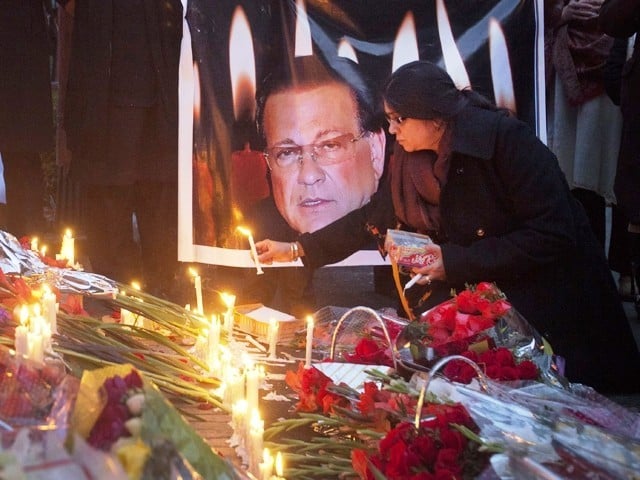For decades Afghans have fled into Pakistan to escape war and upheaval, but in recent months the tide has reversed, with some 60,000 Pakistanis — more than half of them children — taking refuge in the Gulan camp, some 20 kilometers (12 miles) from the border in the restive Khost province.
"We knew the military operations would last a long time once they started," said Malik Omardin, a tribal elder who came from the Pakistani town of Datta Khel. "It's a mountainous area and the insurgents are very strong on their own territory, so the government will have a hard time finding and destroying the Taliban."
More than 210,000 Pakistanis have crossed into Afghanistan from the neighboring North Waziristan province since the Pakistani military launched a long-awaited offensive in June against Taliban and other foreign militants, who have long used the lawless tribal region as a launch-pad for attacks in both countries.
Eastern Afghanistan is an unlikely refuge. Khost and neighboring Paktika, where most of the refugees have sought shelter, are among the most dangerous provinces in the country. Local security forces have struggled to combat the Taliban following the withdrawal of U.S. and NATO forces, and the insurgents are expected to launch a fresh offensive in the spring.
On the edge of the camp, mine removers in pale blue body armor scan the dusty ground for ordinance left over from decades of war. But inside, local traders have set up stalls selling fresh produce, giving the camp an air of permanence. And the Pakistanis say they have been welcomed by local Afghans, many of whom had found shelter on the other side of the border in past conflicts.
The Pakistan offensive was launched last June after a militant attack on Karachi's international airport. The government warned residents to flee, and some 93,000 families — up to 750,000 people — have been displaced inside Pakistan. The Pakistani military says it has killed hundreds of militants, but journalists are barred from the region so it is not possible to verify the claims.
North Waziristan is one of seven tribal regions near the Afghan border where local and foreign militants — including the Pakistani Taliban, al-Qaida and the Haqqani network — had long enjoyed safe haven. A parallel offensive is taking place in the neighboring Khyber tribal region to pursue militants fleeing North Waziristan.
The conflict goes back more than a decade, with the Pakistani government carrying out sporadic assaults on insurgents and U.S. drones targeting them from the air. The militants respond by attacking security forces and residents accused of spying on them, leaving communities gripped by fear.
"The Taliban come at night to place bombs on the roads, which explode and kill soldiers as well as local people, so then the government comes in to hit them back," said Shir Azia, a tribal elder from Miran Shah, in North Waziristan.
"We don't care whether it is the government or the Taliban in control, we just want to live in peace," he said. "We have lost everything because of the fighting."
U.N. agencies are working closely with provincial authorities to provide shelter, food, water, health facilities and schooling for the refugees. Recent arrivals include a high number of households headed by women as men seek work elsewhere — a normal development in refugee communities as resources run low.
Bo Schack, the U.N. refugee agency's director in Afghanistan, said he does not expect the flow of refugees to stop any time soon. More than 40,000 families, averaging 7.5 people, have crossed into Afghanistan, he said. Children account for 58 percent of the Gulan camp's population.
Initial concerns that militants could use the flow of displaced people as cover to sneak across the border have eased. "Our firm impression is that those we are supporting are civilians," Schack said.
However, diplomats and others familiar with the situation on the border have said they believe there has been a spillover of insurgents fleeing the offensive into Afghanistan.
"It is inevitable and unavoidable that militants are coming in this direction, and there will be problems for the Afghan authorities as a result," said one Western diplomat, speaking on condition of anonymity because he was not authorized to discuss the matter publicly.
The camp bristles with weapons and armored vehicles, as Afghan police try to keep the peace, ensuring orderly queues at water trucks and registration desks.
In classrooms erected on the edge of land recently cleared of mines, children learn English by rote chanting. Outside, new arrivals aged between three and 10 years old squat patiently as they wait for their classes to begin. A plainclothes policeman paces nearby with an automatic rifle slung over his shoulder.
Ten-year-old Hayatullah Khan said he arrived at Gulan two months ago with his parents and four brothers. He misses his toy car, which he had to leave behind.
"We are not happy here," he said after class. "We want our homes. We have left behind our madrassas and schools. We have come here with nothing."





